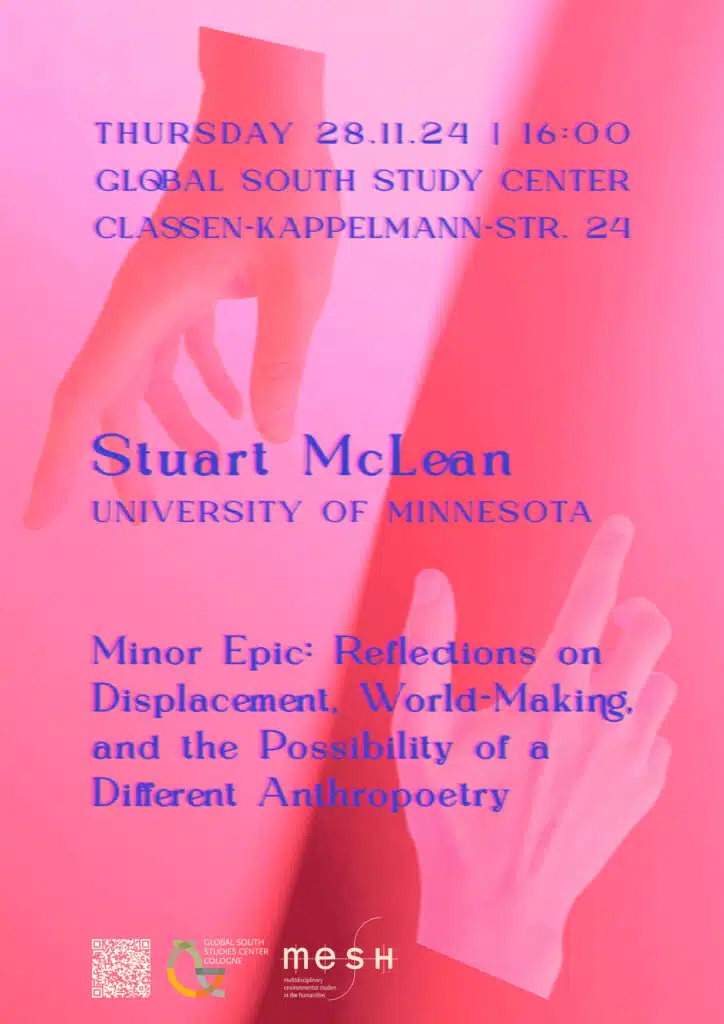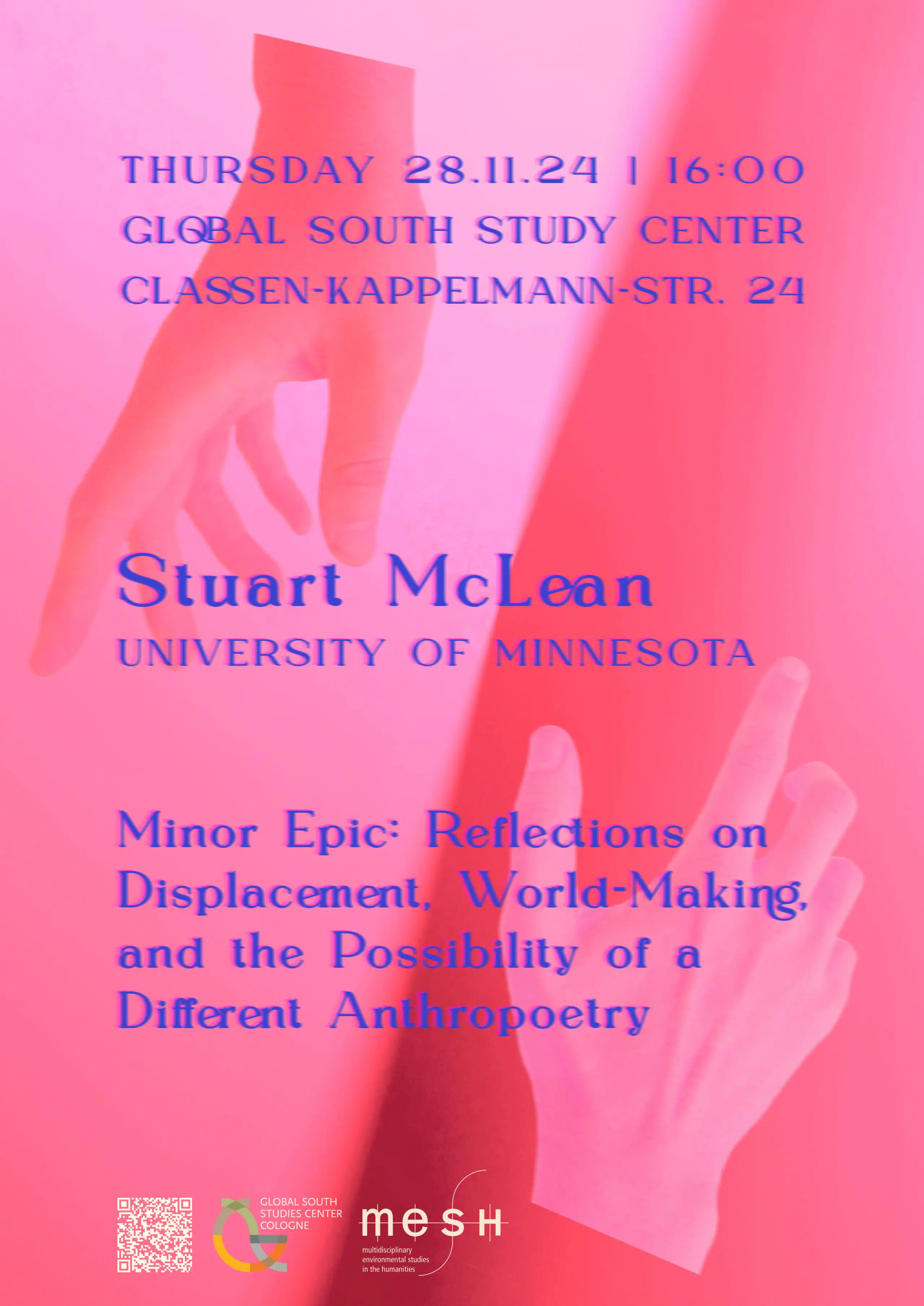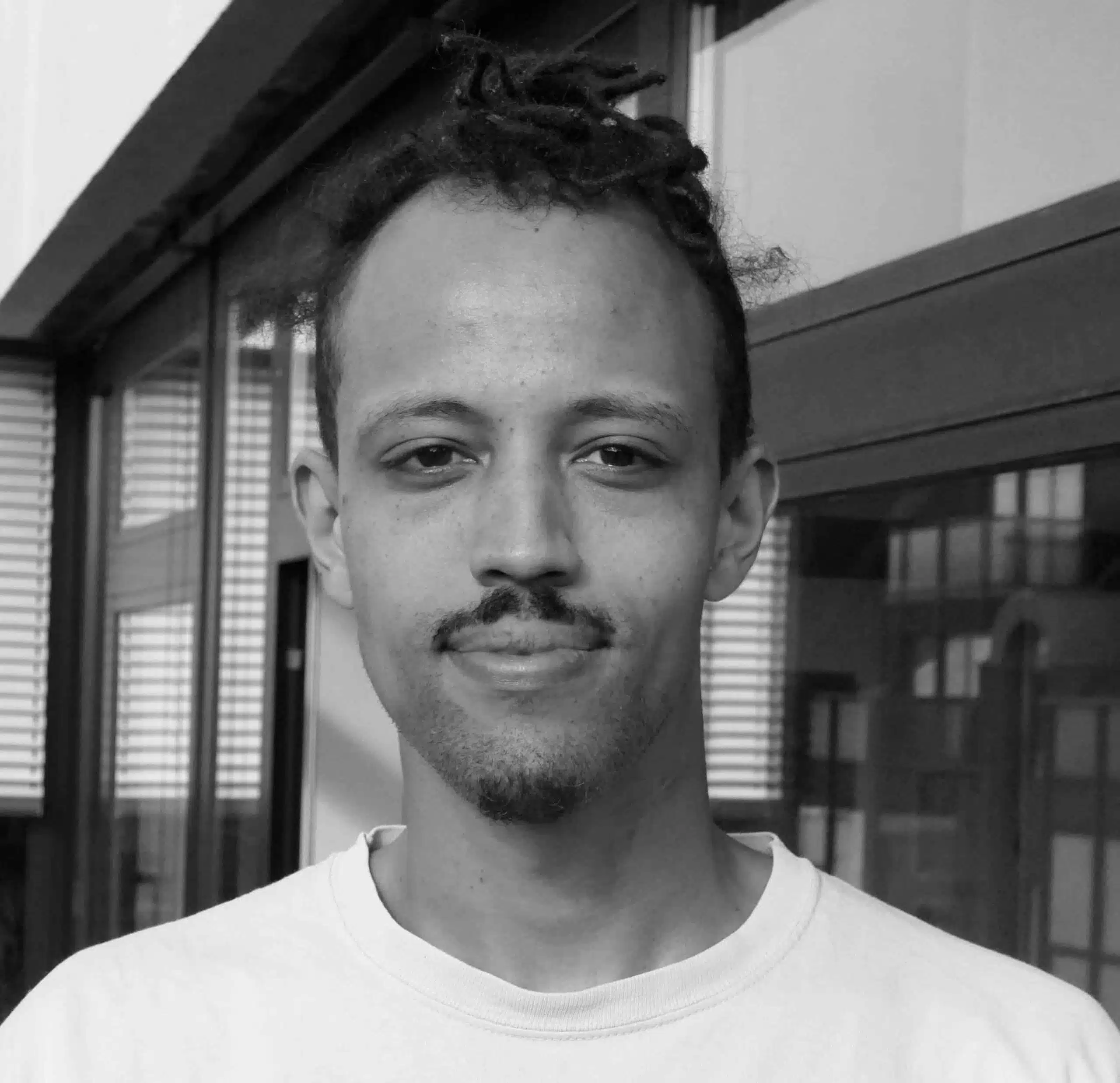Talk: Minor Epic: Reflections on Displacement, World-Making, and the Possibility of a Different Anthropoetry (Stuart McLean, University of Minnesota)
November 28, 2024 | 16.00 | GSSC
(Classen-Kappelmann-Str. 24, 3rd floor, 50931 Cologne )
Anthropologists who have turned to poetry have often claimed to do so as a means of accessing emotional registers of which conventional academic prose is unable to avail. In other words, poetry is tacitly conflated with lyric poetry, today probably the most widely practiced poetic genre, and one associated in particular with the expression of inner feelings and subjectival states. Lyric poetry, however, is not the only kind of poetry. Epic is arguably the most ancient form of poetry, extending back beyond the advent of writing and taking as its subject matter not just the actions of gods, rulers, and heroes, but also in some cases the origins of the cosmos. Unlike lyric poetry (that has tended to direct its gaze inward) epic poetry, as British poet Alice Oswald has recently suggested, propels us “beyond the voice, beyond the mind, out in the pure, unsupervised space.” Since the nineteenth century the epic form has sometimes been appropriated for nationalist political ends, to provide an immemorial ground for a political community often envisioned in narrowly exclusionary terms, seeking to differentiate as unequivocally as possible between those who are considered to belong and those who are not. In recent years of course such a view has gained increasing traction in the wake of Brexit and the electoral victories of Trump and the European far right. Yet epic also provides a potential challenge to such narrowness.
Part manifesto and part collage of my own and others’ words and images, this presentation proposes and enacts a form that I call “minor epic.” I explore this as a potential mode of engaged creative practice offering an alternative both to lyric introspection (and the human exceptionalism to which it is often prone) and to ethnonationalist triumphalism, and in doing so gesturing toward more capacious and generous imaginaries of being-in-common.



